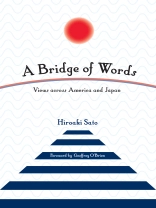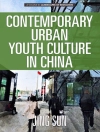Prolific, award-winning translator of classical and modern Japanese poetry Hiroaki Sato recorded his thoughts on American society in mainly two columns across 30-plus years, collected here for the first time.
This anthology of over 60 of Sato’s commentaries reflect the writer’s wide-ranging erudition and his unsentimental views of both his native Japan and his adopted American homeland. Broadly he looks at the Pacific War and its aftermath and at war (and our love of it) in general, at the quirks and curiosities of the natural world exhibited by birds and other creatures, at friends and mentors who surprised and inspired, and finally at other writers and their works, many of them familiar—the Beats and John Ashbery, for example, and Mishima—but many others whose introduction is welcome.
Sato is neither cheerleader nor angry expatriate. Remarkably clear-eyed and engaged with American culture, he is in the business of critical appraisal and translation, of taking words seriously, and of observing how well others write and speak to convey their own truths and ambitions.
Daftar Isi
Table of Contents
Author’s Note
Part I: Wars & Consequences
Part II: Birds and Animals
Part III: Teachers and Friends
Part IV: Talking about Books and Such
Tentang Penulis
Prolific, award-winning translator of classical and modern Japanese poetry Hiroaki Sato recorded his thoughts on American society in mainly two columns across 30-plus years, collected here for the first time.
This anthology of over 60 of Sato’s commentaries reflect the writer’s wide-ranging erudition and his unsentimental views of both his native Japan and his adopted American homeland. Broadly he looks at the Pacific War and its aftermath and at war (and our love of it) in general, at the quirks and curiosities of the natural world exhibited by birds and other creatures, at friends and mentors who surprised and inspired, and finally at other writers and their works, many of them familiar—the Beats and John Ashbery, for example, and Mishima—but many others whose introduction is welcome.
Sato is neither cheerleader nor angry expatriate. Remarkably clear-eyed and engaged with American culture, he is in the business of critical appraisal and translation, of taking words seriously, and of observing how well others write and speak to convey their own truths and ambitions.












